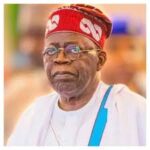In a move that has sent shockwaves through the global film industry, former U.S. President Donald Trump announced plans to impose a staggering 100% tariff on all movies produced outside the United States. Declaring foreign productions a “national security threat” and accusing them of spreading “messaging and propaganda,” Trump’s declaration — made via Truth Social — has left both Hollywood and international filmmakers scrambling to make sense of the potential implications.
While this announcement may still be in its infancy and lacks the legal and logistical backing to become policy immediately, its potential ramifications, especially for African filmmakers, are significant and deeply concerning. For Nigeria — Africa’s largest film market and home to the prolific Nollywood industry — the economic, creative, and diplomatic effects could be damaging.
The Global Shock and Its Ripple Effect
Trump’s assertion that foreign films undermine American filmmaking and messaging has been met with disbelief. Across the U.K., Germany, Canada, Australia, and beyond, industry stakeholders have called the announcement “insane,” “illogical,” and “a threat to global creative freedom.” The Cannes Film Market is already feeling tremors as international buyers and producers worry about disrupted sales, altered distribution models, and a potential plummet in content valuations.
For global streamers like Netflix, Amazon, and Disney — many of whom have invested heavily in local content across Africa, including Nigeria — the impact could be equally severe. Their business model of producing locally and distributing globally, especially to U.S. audiences, would face a direct threat. If implemented, the tariffs could lead to content removals, production halts, or budget slashes.
The Nigerian Reality: A Storm Brewing
Nigeria’s film industry — Nollywood — is the second-largest globally in terms of output and a major cultural export across Africa and the diaspora. With increasing international collaborations, co-productions, and distribution deals with U.S.-based streamers and studios, Nigerian filmmakers are at a crucial juncture in their global visibility journey. Trump’s proposed tariff could derail much of that progress.
Key challenges include:
- Distribution Bottlenecks: Nigerian films, often showcased on global platforms or sold to U.S.-based distributors, could become financially nonviable if a 100% tariff is imposed. Distributors may shy away from acquiring content that will cost them double its value to import.
- Stifled International Collaborations: Recent gains in co-productions between Nigerian filmmakers and international studios — including Hollywood-backed African content — may be halted due to rising risks and unpredictability in the U.S. market.
- Reduced Investment from U.S. Streamers: Netflix, Amazon Prime, and others have heavily invested in African originals. If access to U.S. audiences is hindered, such investments might be diverted elsewhere.
- Devaluation of Creative Work: Films currently in post-production or distribution phases could lose financial backing or be renegotiated at significantly lower rates, diminishing the livelihoods of cast, crew, and production houses.
- Censorship Concerns: Trump’s framing of foreign films as “propaganda” could usher in an era of subtle censorship, where only content aligning with certain values or narratives gains entry into the U.S. This could silence politically or socially critical African stories.
The Way Forward for Nigerian and African Filmmakers
- Strengthen Regional and Intra-African Distribution: African nations must deepen collaborations and invest in pan-African distribution networks. With the African Continental Free Trade Area (AfCFTA), there’s an opportunity to build a robust film economy that relies less on Western markets.
- Policy Advocacy and Diplomatic Engagement: The Nigerian government, through the Federal Ministry of Information and Culture and in partnership with Nollywood guilds, must engage diplomatically with U.S. agencies to protect the rights of Nigerian filmmakers and negotiate fair trade policies.
- Invest in Local Platforms: More resources should be channeled into developing and supporting African-owned streaming services like Showmax, IrokoTV, or other emerging platforms that can serve both domestic and international audiences.
- Leverage European and Asian Markets: With Europe and Asia becoming more open to African content, Nigerian filmmakers should expand distribution strategies beyond U.S. markets and foster ties with film festivals and distributors in these regions.
- Boost Local Incentives and Infrastructure: Nigerian states should emulate global best practices by providing tax rebates, grants, and infrastructure support for local productions. This can attract foreign collaborators who want to sidestep U.S.-centric disruptions.
Conclusion
While Trump’s announcement may not translate into immediate policy, its mere declaration has sown uncertainty across the global creative landscape. For Africa’s film sector — and Nigeria’s Nollywood in particular — it is both a wake-up call and an opportunity. A call to insulate our industry from foreign shocks and a chance to build a more self-reliant, globally competitive film economy.
As the world watches for further developments, Nigeria must rise — not just as a storytelling powerhouse — but as a defender of creative freedom, economic equity, and cultural sovereignty in the global film arena.
Nzubechukwu Eze.









